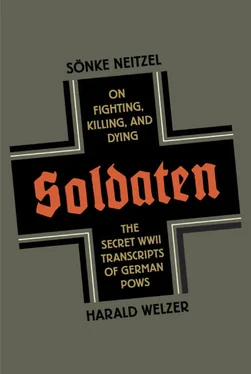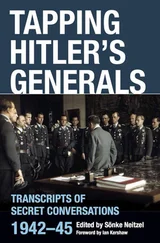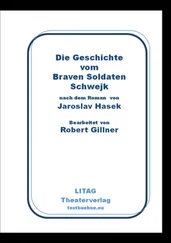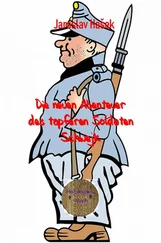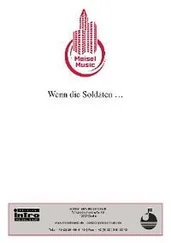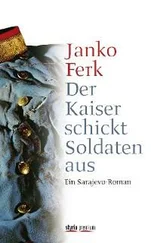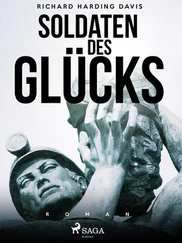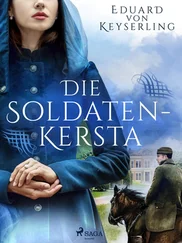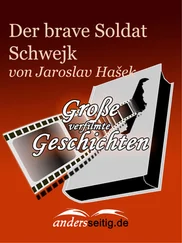POHL: On the second day of the Polish war I had to drop bombs on a station at POSEN. Eight of the 16 bombs fell on the town, among the houses, I did not like that. On the third day I did not care a hoot, and on the fourth day I was enjoying it. It was our before-breakfast amusement to chase single soldiers over the fields with M.G. [machine gun] fire and to leave them lying there with a few bullets in the back.
MEYER: But always against soldiers?
POHL: People (civilians) too. We attacked the columns in the streets. I was in the “Kette” (flight of 3 aircraft). The leader bombed the street, the two supporting machines the ditches, because there are always ditches there. The machines rock, one behind the other, and now we swerved to the left with all machine guns firing like mad. You should have seen the horses stampede!
MEYER: Disgusting, that with the horses…
POHL: I was sorry for the horses, but not at all for the people. But I was sorry for the horses up to the last day. {85} 85 SRA 75, 30 April 1940, TNA, WO 208/4117. All subsequent quotations from this file.
In Pohl’s own account it only took him three days to get used to the violence he began exercising as part of the German campaign in Poland. Already on day four of his mission, feelings of desire predominated, as he illustrates with the phrase “before-breakfast amusement.” His conversation partner, apparently somewhat taken aback, articulates the hope that those killed were enemy soldiers exclusively, but this hope is quickly dashed. Pohl says he shot at “people,” i.e., civilians: in retrospect, the only thing he can’t accept is that horses were hit as well. Meyer seems to sympathize with that.
Pohl then continues his narrative by telling how he bombarded an entire city:
POHL: I was so annoyed when we were shot down; just before the second engine got hot, I suddenly had a Polish town beneath me. I dropped the bombs on to it. I wanted to drop all the 32 bombs on the town. It was no longer possible; but 4 bombs dropped in the town. Down there everything was shot to pieces. On that occasion I was in such a rage… one must imagine what it means to drop 32 bombs into an open town. On that occasion I would not have cared a damn. With 32 bombs I would certainly have had 100 human lives on my conscience.
MEYER: Was there plenty of traffic down there?
POHL: Chockablock. I wanted to drop a batch, because the whole place was full of people. I wouldn’t have cared. I wanted to drop them at intervals of 20 metres. I wanted to cover 600 metres. It would have been great fun if it had come off.
Pohl seems most concerned about inflicting maximum damage before his plane crashed and indeed, as he himself stresses, taking as many lives as possible. He takes aim where the town is “chockablock,” and he’s unmistakably irritated at not having achieved the desired results.
Meyer’s next question is one of professional curiosity:
MEYER: How do people react when they are fired at from a plane?
POHL: They go mad. Most of them lay down with their hands up, making the German sign. (Imitating rattle of M.G.): That laid them out. It was really bestial.
On to their faces—they all got the bullets in the back and ran zigzag in all directions like mad. Three rounds of incendiary bullets, when they had that in their backs, hands up—bang—then they lay on their faces. Then I went on firing.
MEYER: What happens if one lies down at once?
POHL: You get hit all the same. We attacked from 10 metres, and when the idiots ran I had a good target. I had only just to hold my machine-gun. I am sure some of them got a full 22 bullets in them. And then suddenly I scared 50 soldiers and said: “Fire, boys, fire!” and then we just sprinkled them with the M.G.’s. In spite of that I felt the urge, before we were shot down, to shoot a man with my own hand.

“This is what a Polish city looks like from the nose gunner’s position of a warplane.” Propaganda photograph from an He 111, September 1939. (Photographer: Roman Stempka; BA 183-S52911)
In this conversation, one of the parties clearly feels the need to communicate something about himself, while the other tries to analyze whom he’s talking to and what the conversation is really about. We don’t know how often Meyer spoke with Pohl or whether he knew him well. But he seems somewhat revolted at his cell mate’s statement that he’d have liked to have directly shot and killed another human being. He comments:
MEYER: One becomes dreadfully brutal in such undertakings.
POHL: Yes, I’ve already said that on the first day it seemed terrible to me, but I said to myself: “Hell! orders are orders.” On the second and third days I felt it didn’t matter a hoot, and on the fourth day I enjoyed it. But, as I said, the horses screamed. I hardly heard the plane, so loud did they scream. One of them lay there with its hind legs torn off.
At this point in the protocol, there is an interruption, and then Pohl expounds on the advantages of machine-gun-equipped warplanes. Because the planes are highly mobile, one can hunt down victims instead of waiting for them to come into range:
POHL: A plane with machine-guns is really fine. If you have a machine-gun posted anywhere, then you have to wait for the people to come along. A 57.
MEYER: Didn’t they defend themselves from the ground? Didn’t they use A.A. machine guns?
POHL: They shot down one. With rifles. A whole company fired at the word of command. That was the “Do 17.” It landed; the Germans kept the soldiers at bay with machine guns and set fire to the machine.
Sometimes I had 228 bombs, including 10 kg bombs. We threw them into the midst of the people. And the soldiers. And incendiary bombs in addition.
Meyer’s questions and comments tend to be technical in nature, although he does react with emotional dismay on two occasions: when Pohl tells of killing horses and when he confesses his desire to kill someone “with his own hands.” If Pohl’s own account is believed, he didn’t need an adjustment period to get used to violence. He was apparently able to call up violent impulses almost immediately, with little prelude. Strikingly, Pohl does not describe having gotten accustomed to violence. Instead, he repeatedly expresses regret for having perpetrated too little violence and a desire for more victims.
This conversation was recorded in the summer of 1940; the events that are its subject happened in September 1939, directly after the start of World War II. Even if we were to assume that Pohl had had months of combat experience before his exchange with Meyer, and that the experience may have brutalized his stories about his first days of war ex post facto, he was still taken out of the war long before the drastic escalation of violence that came with Germany’s invasion of the Soviet Union. It is beyond doubt that German soldiers committed crimes against humanity in their campaign against Poland, including the murder of civilians and the execution of Jews. {86} 86 See Jochen Böhler, Auftakt zum Vernichtungskrieg: Die Wehrmacht in Polen, 1939 (Frankfurt/Main: Fischer, 2006).
But Pohl was in the air force. He hunts down and kills people from the skies, and he does not give the impression of being ideologically motivated when he describes bombarding cities and gunning down people. His victims have no personal attributes by which he selects them. He doesn’t care which targets he hits, only that he hits targets. He enjoys killing and needs no other motivation. His behavior is not aimed at advancing a larger cause or purpose, but merely at achieving the best results possible. The senseless killing resembles a hunt, a sporting activity in which the only purpose is to be better than others, in this case, by hitting more people with bullets. That’s what most angers Pohl about getting shot down. It spoiled the end result of the hunt.
Читать дальше
